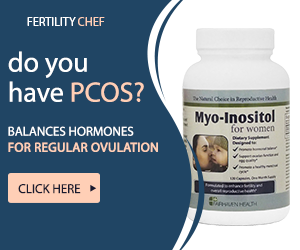Supplements for PCOS
For women with Polycystic Ovarian Syndrome, getting pregnant can be very difficult. However, infertility caused by PCOS is treatable, and using pharmaceutical drugs is not the only option. There are many natural PCOS supplements that promote fertility, some of which have been used for thousands of years. More recently, scientific studies have provided evidence that these vitamins and herbs can successfully treat infertility. PCOS causes an excess of testosterone and a deficiency of progesterone, and as a result, eggs are unable to mature fully. The natural supplements for PCOS work by regulating these hormonal imbalances and promoting reproductive health.
Chasteberry
Chasteberry, which is also known as vitex, is an herbal extract with a long history of medicinal use that can be traced back to ancient Greece. Its fertility-enhancing properties have recently been given credibility by scientific research. Chasteberry acts on the hypothalamus and the pituitary gland to stimulate and regulate the hormones involved in reproduction.
Chasteberry has the ability to increase production of luteinizing hormone (LH) and balance the release of follicle stimulating hormone (FSH). LH is often higher in women with PCOS, however, in this common syndrome there is often an absent LH spike. It is the sudden rise in LH which triggers ovulation, so higher LH levels at the right time in the menstrual cycle are desirable for women attempting to get pregnant. A study in which participants were given supplements for PCOS fertility containing chasteberry, green tea, L-arginine, vitamins and minerals showed a link between the supplements and an increase in progesterone levels. More of the women receiving the supplements were able to conceive than women in the control group. [1]
Other Herbal Supplements For PCOS
Tribulus is a flowering plant that is used all over the world to boost fertility in males and females. It is known to promote reproductive health and help with maintaining a regular menstrual cycle. Research has demonstrated that treatment with tribulus can reduce ovarian cysts in rats, and scientists conclude that tribulus likely does the same for humans. [2]
White peony root is a traditional Chinese remedy that is often used alongside other fertility herbs. It contains the chemical compound paeoniflorin, which has been shown to decrease testosterone production. It can also promote activity of aromatase, which is a protein that converts testosterone into estrogen. [3] White peony root is also used to treat the painful menstruation that women with PCOS experience.
Licorice root is frequently taken in conjunction with white peony root to promote fertility. Studies have shown that it balances estrogen levels and reduces serum testosterone. Inflammation of the pelvis can contribute to infertility, and licorice root also acts as an anti-inflammatory agent. [4]
Maca root (Lepidium meyenii) is a plant harvested in the Andes of Peru that has long been known for its fertility benefits as well as general health benefits. Maca root’s ability to promote male fertility has been documented more extensively, but there are a few studies regarding its effects on female fertility. In women, maca root aids functioning of the endocrine system and balances sex hormones. [5]
Omega-3 Fatty Acids
Omega-3 fatty acids, which are found in fish oil, are famed for their many health benefits. Fatty fish such as tuna, salmon and sardines contain omega-3, and fish oil is also available in capsules. It is an excellent supplement for PCOS to add to any diet. Fish oil offers relief from the depression and mood problems that affect many women with PCOS, and it can also boost fertility.
Omega-3 balances levels of testosterone and FSH, and it promotes development of the uterine lining. Additionally, omega-3 can act as an anti-inflammatory, alleviating the pelvic inflammation that results in infertility. [6]
Vitamins for Thyroid Function
Hypothyroidism is another condition that causes problems with fertility. Low thyroid function results in a reduction of progesterone release and ovulation. There is also evidence of a link between hypothyroidism and PCOS. Both conditions cause elevated levels of serum free testosterone and DHEA-S. Thyroid dysfunction has also been suggested as a possible cause of ovarian cysts. [7] Therefore, women with PCOS can benefit from taking vitamins that promote healthy thyroid function.
Iodine is crucial to the functioning of a healthy thyroid. However, an excess of iodine can also be harmful to the thyroid, so women who do not have an iodine deficiency should be careful when supplementing with it. [8]
Selenium promotes the thyroid’s ability to synthesize hormones, and it can also reduce inflammation of the thyroid. Thyroid cells cannot function and produce hormones if they are attacked by inflammation. [9] [10]
Zinc deficiency has been shown to have a negative effect on thyroid function. [12] Zinc is also a popular vitamin for boosting fertility and maintaining reproductive health.
References
- ncbi.nlm.nih.gov
- wiley.com
- ncbi.nlm.nih.gov
- ncbi.nlm.nih.gov
- ncbi.nlm.nih.gov
- ncbi.nlm.nih.gov
- ncbi.nlm.nih.gov
- nejm.org
- ncbi.nlm.nih.gov
- endocrine.org
- ncbi.nlm.nih.gov
- ncbi.nlm.nih.gov





